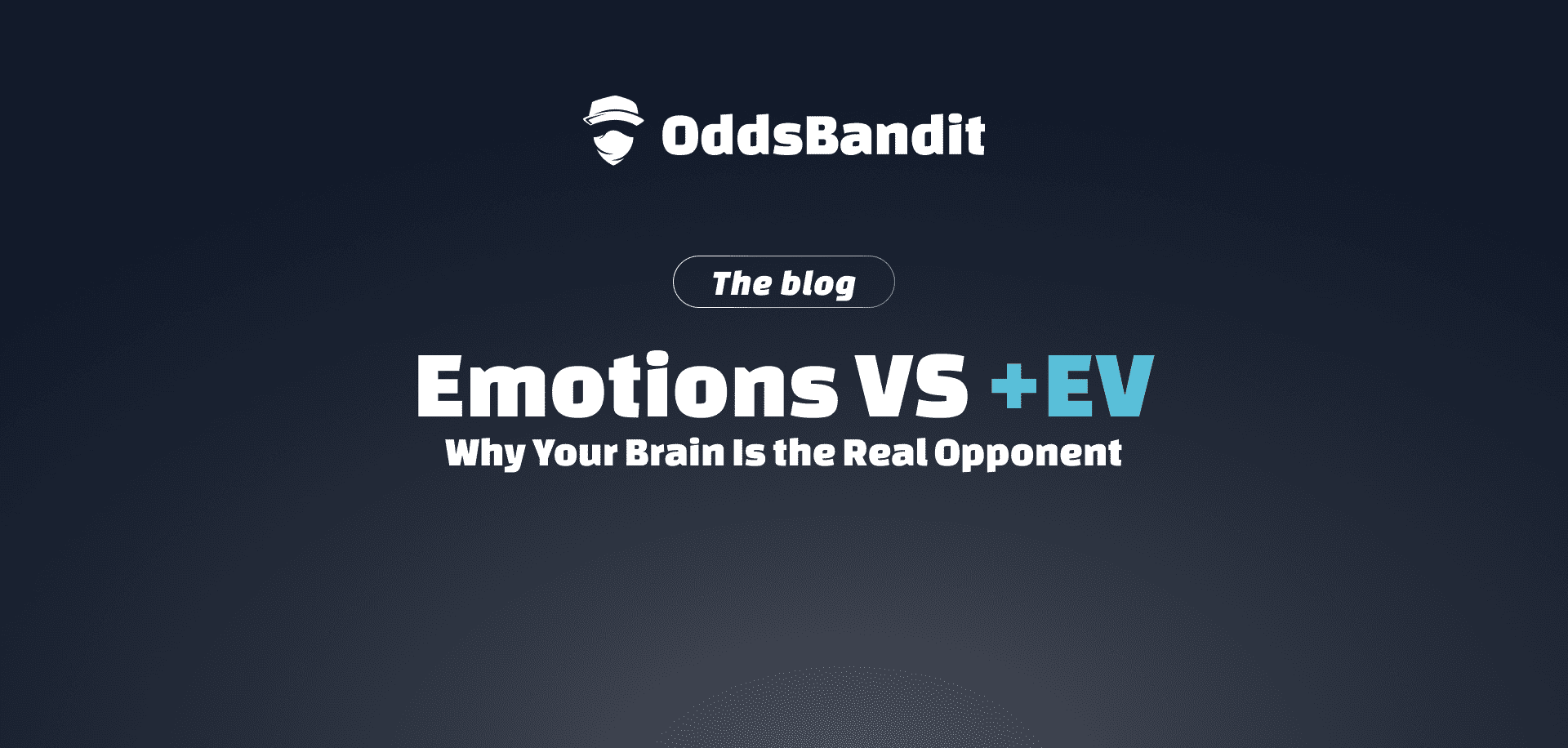
Emotions vs. EV: Why Your Brain Is the Real Opponent
Emotions are the real enemy of profitable betting. Biases like the gambler’s fallacy, recency bias, and loss aversion push bettors to make irrational choices that destroy long-term value. True success comes from trusting expected value (EV), following a set staking plan, and staying emotionally detached. With OddsBandit’s data-driven approach, bettors can eliminate bias, stay disciplined, and let math — not emotion — guide their decisions.
The Real Enemy Isn’t the Bookmaker
When you lose a bet, it’s easy to blame the odds, the referee, or bad luck. But your true opponent sits between your ears.
Your brain evolved for survival, not statistics. It wants patterns, certainty, and emotional reward — the exact opposite of what profitable betting requires.
That’s why understanding expected value (EV) isn’t enough; you need to master the psychology that keeps you from sabotaging your own edge.
The Emotional Traps Every Bettor Faces
Let’s meet a few of the usual suspects:
1. The Gambler’s Fallacy
You flip a coin and get heads five times. Surely tails must be next, right? Wrong. Each flip is independent.
In betting, this illusion makes people “chase correction” — backing a losing streak simply because it feels “due.”
2. Recency Bias
We overvalue the latest result. A team that just crushed an opponent looks invincible, while a recent loser looks doomed. The market already knows this — that’s why odds often overreact to recent form.
3. Loss Aversion
Psychologists have shown that losing hurts roughly twice as much as winning feels good. That’s why bettors double stakes after a loss or quit after one bad week.
Emotionally logical. Mathematically disastrous.
4. Confirmation Bias
Once we decide what we believe (“Team X always wins at home”), we seek data that agrees and ignore the rest. Bookmakers profit from that selective blindness every weekend.
EV vs. Emotion: The Constant Battle
Expected value — or EV — is pure math. It doesn’t care who you support, what happened last time, or how you feel.
But emotion wants certainty. It craves the dopamine of “being right.”
That’s why so many bettors swing between overconfidence and despair — they let emotion override probability.
A true value bettor does the opposite: they trust the math even when it feels wrong.
Training Mental Discipline
Discipline isn’t about suppressing emotion — it’s about building habits that override it.
Track your bets like an investor tracks trades. Numbers expose emotional leaks.
Predefine your staking plan so you never adjust bets based on gut feeling.
Detach from short-term results; focus on EV and long-run outcomes.
Embrace variance; losing streaks are part of statistical reality, not failure.
OddsBandit helps with this by presenting objective, EV-based opportunities — not emotional hunches. When you follow the data, you remove the bias loop that kills most bankrolls.
The OddsBandit Edge: Cold Math, Clear Mind
OddsBandit was built to do what your brain can’t — strip emotion from betting. Its algorithms process live odds, probabilities, and value gaps without bias, offering bettors statistical edges grounded in reality.
Your only job is to act like a disciplined investor, not a thrill-seeker.
Because in betting, the line between profit and chaos isn’t luck — it’s psychology.
Final Thought: Master the Opponent Within
The greatest challenge in betting isn’t finding value — it’s sticking to it when your instincts scream otherwise.
Emotion whispers that you’re “due a win.” EV calmly says, “trust the numbers.”
The winners listen to the math.
The losers listen to the noise.
With OddsBandit, you can finally silence the noise and let probability do what it does best — reward discipline.